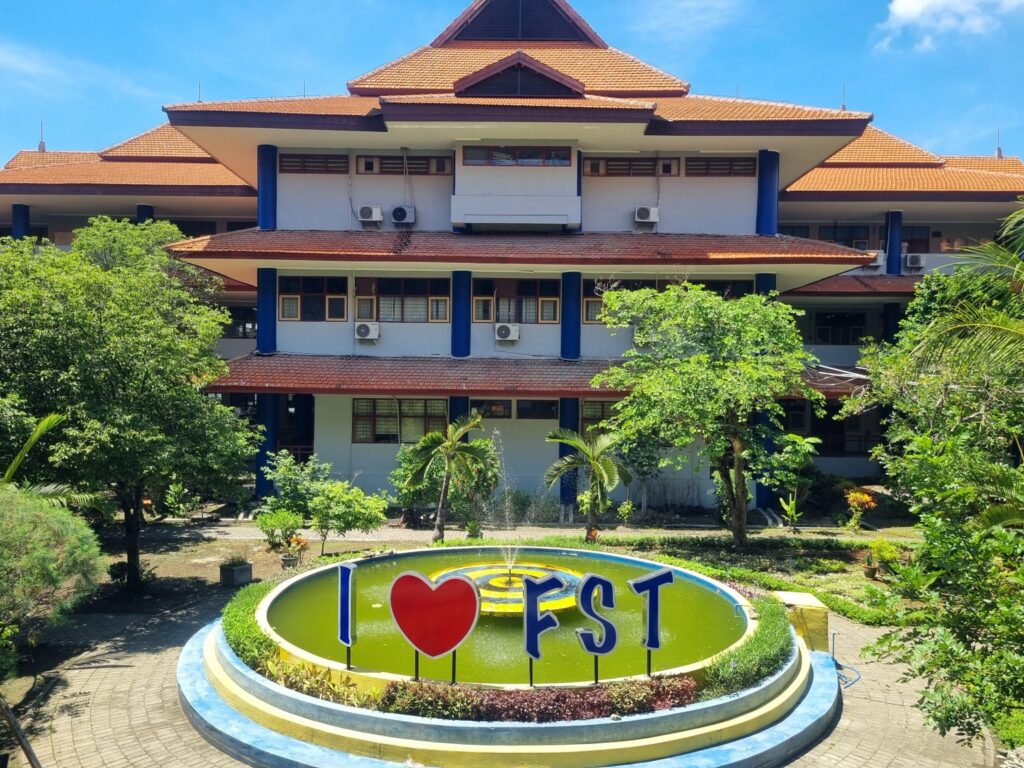
Vision
History
The Faculty of Science and Technology (FST) is a renaming of the Faculty of Mathematics and Natural Sciences (FMIPA). As the precursor to the establishment of FST, FMIPA was established through the Rector’s Decree of Airlangga University No. 6400/PT.03.9/I/1982 dated July 1, 1982, and was inaugurated by the Rector of Airlangga University on July 7, 1982. The existence of FMIPA at Airlangga University was affirmed by the Presidential Decree of the Republic of Indonesia No. 56 of 1982 dated September 17, 1982. FMIPA encompassed four undergraduate programs: Mathematics, Physics, Chemistry, and Biology.
With the development of information technology and societal needs for professionals in medical equipment and environmental expertise, new undergraduate programs were opened: Information Systems, Biomedical Engineering, and Environmental Science and Technology. The establishment of these three programs necessitated a reevaluation and subsequent renaming of FMIPA. Thus, on April 10, 2008, through the Rector’s Decree No. 3294/J03/OT/2008, FMIPA was renamed the Faculty of Science and Technology.
Vision of Physics Undergraduate Program
To become an innovative and leading undergraduate program in the field of Physics and its applications, supporting scientific development, industry, and medicine at the national and international levels through education, research, and community service based on religious morals.
Mission of Physics Undergraduate Program
- To organize an educational program that encourages and facilitates students to have high academic capacity, professionalism, innovation, and global competitiveness.
- To conduct internationally renowned research with an integrative approach to physics based on the development of science and technology.
- To dedicate expertise in the field of physics and its applications for the empowerment of society.
- To establish collaboration networks with stakeholders at the national and international levels in the fields of education, research, and community service.
Objectives of Physics Undergraduate Program
Produce graduates who are able to:
- Adapt and solve problems in his field of work by using the physics science and methodology he has learned so that he can compete in the global era.
- Able to continue to develop careers by increasing knowledge to a higher level both through formal and informal processes.
- Utilizing his mastery of scientific methods in observing, analyzing and understanding natural phenomena, as well as induction-deduction methods to support career journeys.
- Following the development of the specific field of expertise he pursues and its interaction with the global dynamics of the development of science and technology, industry, and life in general and has social responsibility as a moral and intellectual force.
- Communicate ideas both orally and in writing, both scientific and popular, as well as being able to take appropriate initiatives and being able to lead teams in relevant fields.
Mission
- Organizing an educational program capable of encouraging and facilitating students to have high academic capacity, professionalism, innovation, and global competitiveness.
- Conducting internationally standardized research with an integrative approach to physics based on the development of science and technology.
- Utilizing expertise in the field of physics and its applications for community empowerment.
- Building a network of cooperation with stakeholders at the national and international levels in the fields of education, research, and community service.
Objectives
Produce graduates who are able to:
- Adapt and solve problems in his field of work by using the physics science and methodology he has learned so that he can compete in the global era.
- Able to continue to develop careers by increasing knowledge to a higher level both through formal and informal processes.
- Utilizing his mastery of scientific methods in observing, analyzing and understanding natural phenomena, as well as induction-deduction methods to support career journeys.
- Following the development of the specific field of expertise he pursues and its interaction with the global dynamics of the development of science and technology, industry, and life in general and has social responsibility as a moral and intellectual force.
- Communicate ideas both orally and in writing, both scientific and popular, as well as being able to take appropriate initiatives and being able to lead teams in relevant fields.
